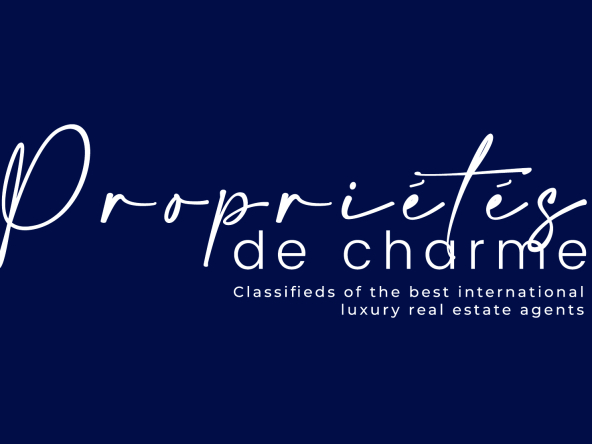Reduced Fee Agencies: Good or Bad Track?
The real estate market has undergone a significant transformation in recent years, with the emergence of a new model of real estate agencies: reduced fee agencies. This concept attracts more and more owners wishing to sell their property, but also raises questions. Is this a good or bad lead? This article looks at low-fee agencies, examining how they work, their advantages and disadvantages, as well as the legal aspects that govern them.
What is a Low Fee Agency?
A reduced fee agency is a real estate agency that offers sales services at lower rates than traditional agencies. Unlike the latter, which generally charge commissions based on a percentage of the sales price, low-fee agencies have significantly lower fixed fees or percentages.
Operation of Agencies with Reduced Fees
These agencies can operate in several ways. Some focus on online advertising, using digital platforms to reach large audiences without the need for a network of traditional agents. Others may offer limited services, such as putting the listing online and arranging showings, while leaving some aspects of the sale to the owner to handle.
The Advantages of Agencies with Reduced Fees
1. Cost Savings
The main advantage of low fee agencies is the ability to save on sales fees. For homeowners, this can represent a substantial saving, especially for high-value properties. For example, if a traditional commission of 5% on a property sold for €500,000 represents €25,000, a reduced fee agency offering a rate of 2% would save €15,000.
2. Simplicity and Transparency
Low fee agencies often offer a simple and transparent pricing structure. Customers know in advance how much they will pay, with no hidden surprises. This can help plan the budget more effectively.
3. Access to a Large Audience
These agencies often leverage powerful digital tools to reach large audiences. By using online platforms, they can promote listings effectively, increasing the chances of selling quickly.
4. Autonomy for Owners
Low fee agencies allow owners to maintain some control over the sales process. They can handle visits, negotiations and other aspects themselves, which can be appealing to those who are comfortable with the process.
The Disadvantages of Low Fee Agencies
1. Limited Services
One of the main disadvantages of low-fee agencies is the limitation of the services offered. Often, these agencies do not offer complete support, which can cause difficulties for owners who are not experienced in the real estate field. Marketing, legal advice and negotiation services may be minimal or non-existent.
2. Less Personalized Support
In many cases, low-fee agencies lack the expertise and personalized support expected of a traditional agency. This can be particularly problematic when negotiating the price or when managing administrative procedures.
3. Risk of Undervaluation of the Property
Homeowners who choose to sell their property through a discount agent can sometimes understate the value of their property, due to a lack of proper advice. The absence of a professional appraisal can lead to a sale for less than its true value.
4. Pressure to Sell Quickly
The reduced fee model may encourage some agencies to want to close the sale quickly, to the detriment of the sale price. Landlords may find themselves accepting lower offers due to this pressure.
Fixed Fee Agencies: Another Model
Alongside reduced fee agencies, another model has emerged: fixed fee agencies. These agencies offer fees of a specific amount, regardless of the sale price of the property. This can also be an attractive option for homeowners.
Advantages of Fixed Fee Agencies
- Cost Transparency : As with low fee agencies, fixed fees provide complete transparency. Owners know exactly how much they will have to pay.
- Potential Savings for High Value Properties : For luxury properties, choosing a fixed fee agency can be economical.
Disadvantages of Fixed Fee Agencies
- High Fees for Minimal Service : If the services provided by the agency do not justify the price, owners may feel like they are paying too much.
- Pressure to Close : As with discount agencies, there can be pressure to sell quickly, which can hurt the final price.
What is the Legal Framework for Reduced Fee Agencies?
Real estate agencies, whether with reduced fees or not, are subject to a strict legal framework in France. The Hoguet law of January 2, 1970 is the reference text. Here are some key things to consider:
Written Mandate
Article 4 of the Hoguet law requires that a real estate agent can only receive a commission if he has a written mandate with the owner. This mandate must clearly stipulate the amount of fees or the percentage applied.
Fee Transparency
The law requires that agencies clearly display their fees, particularly in sales advertisements. This allows customers to compare offers transparently.
Consumer Protection
The Consumer Code protects consumers by guaranteeing them the right to be informed of the costs associated with services. This includes the need for agencies to provide clear and accurate information on service fees.
How to Choose an Agency with Reduced Fees?
1. Evaluate the Services Offered
Before choosing a discount agency, it is essential to evaluate the services offered. What aspects are included in the price? Check whether essential services like property valuation, marketing or legal assistance are provided.
2. Compare Prices
Do not hesitate to compare the prices of several agencies. Some may offer similar services at different costs. A thorough comparison will allow you to make an informed decision.
3. Read Customer Reviews
Feedback from other clients can provide valuable information about the quality of services offered by an agency. Check online reviews to get an idea of their reputation.
4. Ask Clear Questions
During the first meeting, do not hesitate to ask questions about how the agency plans to sell your property. How will they promote your property? What channels do they use to reach potential buyers?
Discounted fee agencies represent an attractive alternative to traditional agencies, offering potential savings for owners. However, these savings may come with limitations in terms of services and support. It is therefore essential for owners to carefully assess their needs and compare offers before making their choice.
With a good understanding of the advantages and disadvantages of low-fee agencies, as well as the legal elements to take into account, owners can make informed choices when selling their property. Whether with a traditional agency, with reduced or fixed fees, the important thing is to find the right balance between cost and quality of service.
Follow “ ProprietesDeCharme.com ” on YouTube Facebook Twitter LinkedIn Instagram Pinterest


